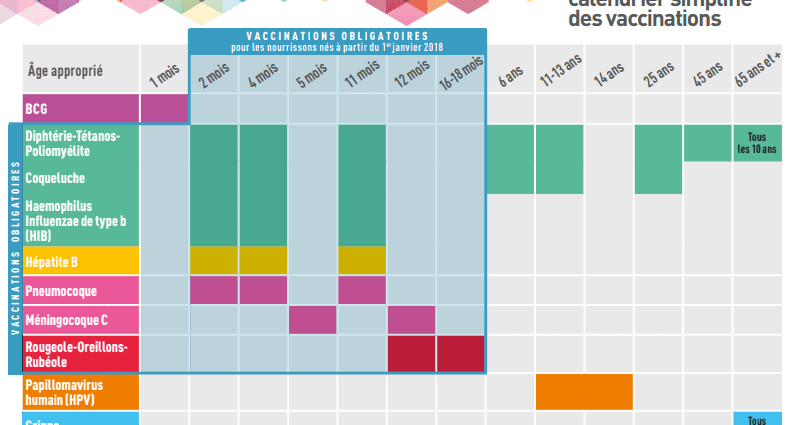Contents
Compulsory examinations for babies and children
From birth, then during his young life, the child will be subjected to many compulsory medical examinations, or advised, to check his good health then the good progress of his development. Thanks to this medical routine, complete screenings are carried out monthly.
Screening during the infant’s first week of life
During his stay in the maternity ward, the baby is examined by health professionals so as not to miss any physical, mental or disease dysfunction. Here are the main tests that your child will undergo from the first days of his life:
- A quick medical examination: very soon after birth, the medical team takes care of cleaning the baby, removing the secretions that clog his mouth, throat and nose and taking his temperature. He is also weighed, measured and his heart rate is monitored. Then his skin color and his body are observed to determine any malformations or health concerns.
- The “Apgar” test: thanks to the previous measurements as well as to a control of its breathing, its reactivity and its tone, the doctor can calculate the Apgar index which corresponds to a degree of state of health of the patient. infant. Between 0 and 10, it allows the practitioner to know what to do with each child.
- Checks of basic reflexes called “archaic”: the medical team also checks basic reflexes such as sucking or automatic walking to ensure that the newborn is in perfect health and that all is well.
- The “Guthrie” test: just before the baby returns home, the doctor takes a few drops of blood by pricking the infant’s heel to detect rare diseases such as phenylketonuria, congenital hypothyroidism or hepatorenal tyrosinemia. can be treated quickly, before the first symptoms appear. The sample then goes to the laboratory which only comes back to you in the event of a problem within 15 days.
Screenings of the first months of the child
Even if your child is in good health, the medical appointments will follow one after the other during his first months of life and you will go to the doctor almost every month. It is really important for healthcare professionals to check that your child’s development is “normal” and to spot any symptoms very quickly that you may not have noticed.
During these various consultations, his sight and hearing will be carefully checked, vaccines will be administered and certain malformations or diseases can be detected. Your child will therefore be weighed, measured and his muscle tone as well as his motor development will be monitored and analyzed. The doctor will also check that the positioning of his hips is normal.
During the ninth month examination, the pediatrician focuses mainly on checking his eyesight and hearing with specific tests. As for that of the twelfth month, it is the implementation of walking and language that are at the heart of medical examinations.
Screening in older children
From the end of the child’s first year, the appointments are spaced out with consultations every 4 months or so. During these exams, the classic checks continue (weight, height, eyesight, etc.) but the doctor is increasingly interested in the development of the child’s skills: walking should in principle be acquired around 16 months. , climbing stairs around 20 months, naming pictures, showing objects etc. The doctor thus makes sure that the child continues his physical and mental maturation properly.
Then, from the age of two, practitioners recommend two annual meetings. This prevention makes it possible to pinpoint any stunted growth, problems with socialization at school or language problems. And, in any case, to remedy it as quickly as possible. These appointments can be made with a pediatrician or a general practitioner. During each consultation, do not forget to take your child’s health record with you.
In order to be able to detect and treat the various pathologies or delays in your child as soon as possible, it is still necessary to have consulted a doctor to have them highlighted. And if all the checks that we have seen above are not mandatory, they are nevertheless more than strongly recommended by health professionals. It is by monitoring and being on the alert that you increase your chances of detecting possible delays or health problems.










